Three years ago I sat up awake through the night, staring out my front window at a distant mountain burning from one end to the other. The fire raged so hot that literally hundreds of firefighters couldn’t control it and resorted to becoming bystanders. For miles around, officials evacuated people from their homes due to strong unpredictable winds. By dawn the fire had burned a devastating 25-mile swath that left nothing alive in its wake. The entire butte remained a heap of blackened ash until winter arrived and covered it with a blanket of fresh snow. By the following spring, the snows melted away and the butte transformed into a landscape of vivid colors. Wild flowers covered its slopes and the grass grew longer and greener than I had ever seen. God restored and renewed this beautiful butte with fire.
While the balance God strikes between mercy and justice is often difficult for us to grasp, it is clear throughout the Bible that God places redemption and restoration as two of his top priorities. Through the prophet Isaiah, God detailed all that the Christ would do some eight hundred years before his arrival on earth. Isaiah 61 contains one of the most famous prophecies, the same prophecy that Jesus quoted when he began his public ministry as recorded in Luke 4. It is here that Jesus stated that he had come to heal the broken hearted, to set the captive free and to bring good news to the poor. It was also here that God explained the Messiah would come and turn ashes to beauty (see Isaiah 61:3).
From the ashes of devastation God would bring redemption and restoration. This is a picture of the intent and heart of God. Isaiah prophecies, “The Sovereign Lord will show his justice to the nations of the world. Everyone will praise him! His righteousness will be like a garden in early spring, with plants springing up everywhere” (Isaiah 61:11). Out of justice will come a new beginning and a restored garden. But not every doctrine ascribes to honor this perspective of Scripture.
One common biblical view held by many Christians is that the unrighteous or ungodly will be destroyed by fire along with the earth at the final judgment. This is based on the scripture in 2 Peter 3 where Peter wrote, “Most importantly, I want to remind you that in the last days scoffers will come, mocking the truth and following their own desires. They will say, ‘What happened to the promise that Jesus is coming again? From before the times of our ancestors, everything has remained the same since the world was first created.’ They deliberately forget that God made the heavens by the word of his command, and he brought the earth out from the water and surrounded it with water. Then he used the water to destroy the ancient world with a mighty flood.” Peter goes on to say, “And by the same word, the present heavens and earth have been stored up for fire. They are being kept for the day of judgment when ungodly people will be destroyed. ” A few verses later he writes, “But we are looking forward to the new heavens and new earth he has promised, a world filled with God’s righteousness. And so, dear friends, while you are waiting for these things to happen, make every effort to be found living peaceful lives that are pure and blameless in his sight.” Some have surmised that this consuming fire could be a result of nuclear holocaust—but who really knows?
As I overlaid Jesus’ words onto Peter’s writing in 2 Peter 3, it suddenly occurred to me that God used the flood not to destroy the earth, but to renew it. Out of this devastating flood emerged righteous humanity and a restored creation. You might say that Noah, his family and all the animals with him stepped onto a new earth, but in reality it was the same earth. Noah’s flood was an Old Testament foreshadow of a New Testament reality; God’s heart is for restoration, reconciliation and renewal, and has never been for complete destruction in the form of obliteration. In 2 Peter 3:10, Peter says, “The elements will be destroyed by fire, and the earth and everything in it will be laid bare.” The word translated “laid bare” literally means “shall be found” or “discovered.” Noah found or discovered a new world, even though it was the same physical earth. The word “destroyed” found in 2 Peter, chapter 3 verse 10 in the Greek iseurethesetai meaning “shall be found” or “to discover.” Noah found or discovered a new earth, even though it was the same physical earth.
This is important because if the second destruction of the earth is like the first one (only by fire instead of water), the same result will occur. Like the first time, God’s plan is not to obliterate the earth and create a new one somewhere else, but to renew and restore it by fire. Throughout the Bible water and fire have always been seen as agents of purification and refining. The Bible speaks of a baptism of water and a baptism of fire, both of which produce cleansing. Jesus provides a prime example of purification by fire when he speaks of our faith being refined by the “fire” of trials and hardships even as gold is refined by fire (see 1 Peter 1:6-7).
In the state of Idaho, the Sawtooth Wilderness easily ranks as one of the most beautiful ranges of mountains. I have climbed the alpine peaks, fished the lakes and packed my horses in the backcountry of the Sawtooth Range since the 1960s. After our wedding in 1970, my wife Nancy and I backpacked into these breathtaking mountains on our honeymoon.
On a recent trip to the Sawtooths, we discovered that most of the forest in the area had become infested with Bark Beetles. Thousands of mature pine trees, primarily Lodgepole pines, were dying and dropping their needles. What was once a breathtaking sight had become a landscape of devastating brown. Due to the Idaho firefighters so diligently putting out the fires that would normally eradicate the beetles and regenerate life in Lodgepoles, the pines were dying while the Bark Beetles were thriving. At this point, the only hope for the recovery of this forest is a devastating fire that will leave the landscape charred and ugly for many years. Nevertheless, this fire is what will one day turn a sick forest into a thriving one.
God gave us an earth to love, appreciate and care for. He called us to environmental responsibility. In Genesis 9, it tells us that he gave us the resources of the earth for our provision so that we could reproduce and live. He gave us everything on the earth for our use, but not our abuse. Use turns to abuse when we express feelings of entitlement through our actions. When our use of something steps over the line of sustainability it becomes abuse. When we no longer think about the welfare of future generations but only of our own immediate wants, our actions become abusive. Stewardship requires an authentic reverence towards the Creator, something that every true Christian should have. When I hear someone say, “It’s all going to burn anyway,” it makes me think two things: first, that person has missed the heart, motive and character of God; and second, that person is denying the responsibility of creation care or environmental stewardship. The statement, “It’s all going to burn anyway” communicates an absence of Kingdom responsibility, much like the neglectful stewards that Jesus rebuked so harshly in Matthew 24 after he spoke of the characteristics of the last days.
The earth is a gift of God, there is none like it and it is the only one we will get. The Bible tells us that there is coming a day that it will be cleansed with fire, but like in the days of Noah it will be renewed and restored. And like in the days of Noah, two things will survive: God’s miraculous creation and righteous, faithful humanity.

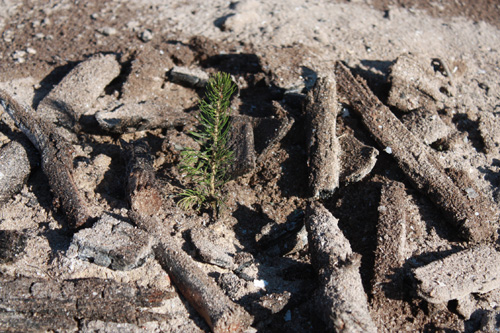
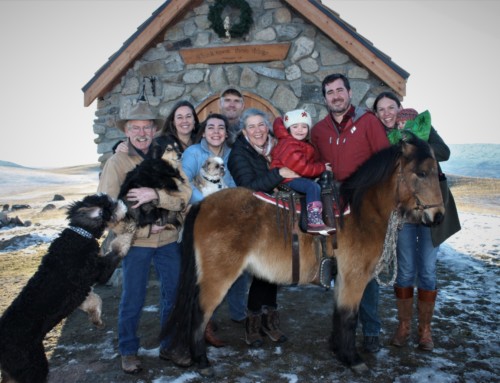
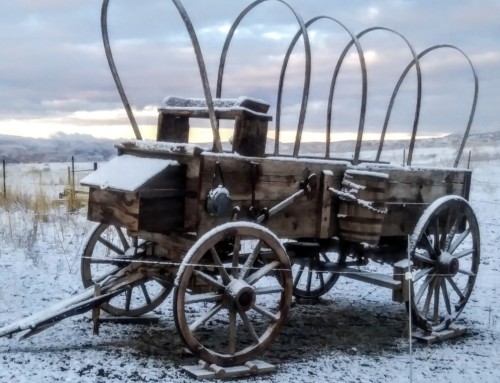
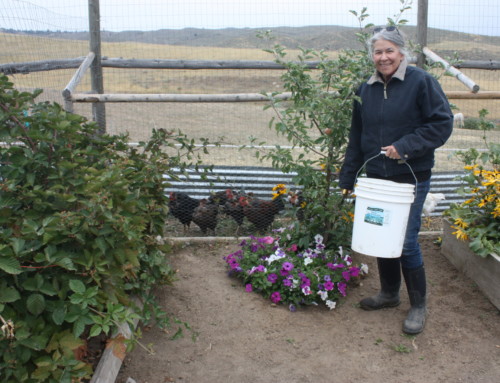
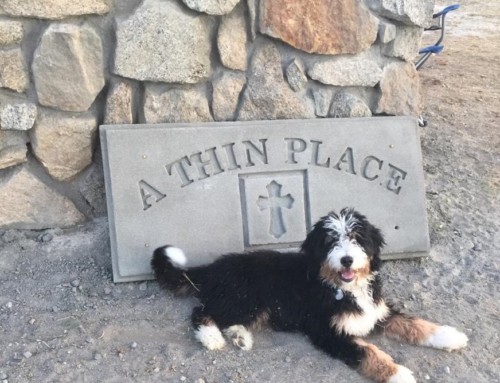
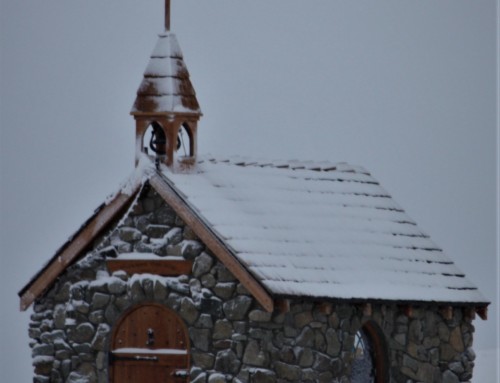
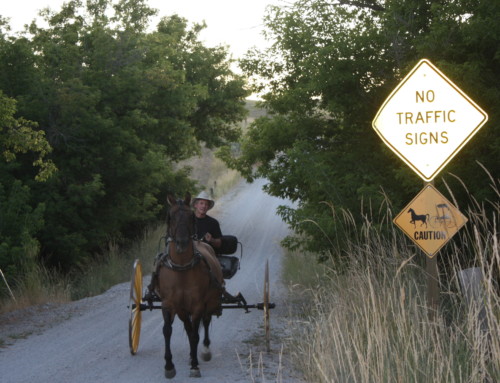
Leave A Comment
You must be logged in to post a comment.